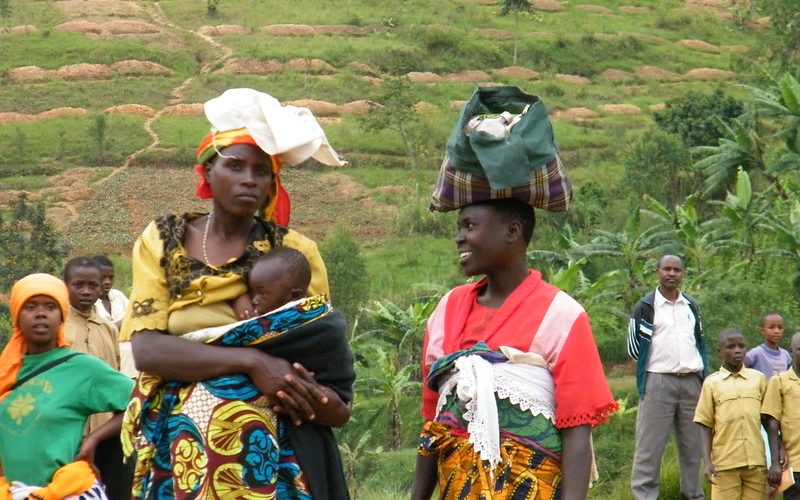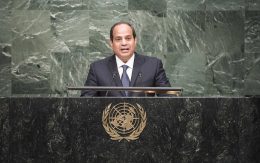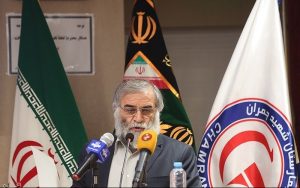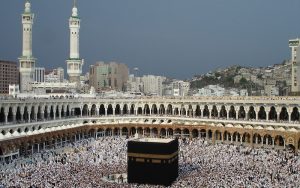Introduction
Post-flag African governments’ manipulative use of women’s rights discourses and the state-sponsored encouragement of binary gender roles has become a central topic of discussion in African feminist scholarship and political action. Feminist African scholars and activists are asking important questions about the position of men and women in post-colonial African societies, specifically about the governments’ interest in promoting the preservation of traditional gender roles. Such questions are framed within different post-colonial realities, where emerging issues of neo-coloniality, ethnonationalism, and liberation struggles overlap.
This analysis draws on the arguments of feminist scholars Awino Okech, Akhona Nkenkana and others (McClintock, 1995; Zerai, 1994) to explore the complex role of women in African post-flag societies, and in particular the strategic use of hetero-patriarchal narratives (such as female domesticity and motherhood) by different African governments for the purpose of nation and state-building. The purpose of this article is to show how, as accurately pointed out by some contemporary African feminist literature, African ethnonationalisms and militarised practices of state-building heavily benefit from the oppression of women and the control of women’s bodies.
This analysis does not focus on specific country study-cases, although it offers more insight on studies conducted in Rwanda, Kenya, and South Africa. Rather, its aim is to construct a dialogue among African scholarly voices speaking up about the necessity of unpacking the deeply entrenched relationship between gender and the process of state and nation-building. Such unpacking, according to their decolonial feminist critique, is a prerequisite for asking the right questions about African women’s rights and strive toward emancipation.
The Role of African Women in Ethno-Nationalist Cultural Preservation
When thinking about the roles women are pressured to undertake in African post-colonial nation-states, it is useful to think about the way in which colonial rule interacted with gender dynamics in different African sites. In her study of the role of Eritrean women during the struggle for Eritrean independence, Worku Zerai points out that Italian and British colonisers, who were interfering with various areas of Eritrean social fabric, had no interest in bettering the social status of women (Zerai, 1994: 65). As she puts it, “one of the actual reasons for this was that the colonial administrators were male” and “it was therefore natural that they should bring with them their own male-biased cultural paraphernalia concerning women and women’s role in society” (Ibid., 65).
As a consequence, post-colonial African states were built upon structures dominated by a range of exclusively male actors (politicians, writers, intellectuals, leaders), and sustained on the characterisation of women as symbols of motherhood and as “the bearers of tradition” (Ndlovu-Gatsheni, 2015: 48). These binary constructions of gender, as pointed out by Akhona Nkenkana and Anne McClintock, are typical tools utilized in nation and state-building processes since they allow for control and limitation of access people have to rights and resources (McClintock, 2015: 49). The attempt by African nation-states to create popular unity, they argue, is often inevitably fueled by nationalism – which is masculinised in nature, and “cannot be understood without a theory of gender power” (Ibid., 49). Women’s position in post-colonial African states is therefore rooted in colonial power, which further established the interiorization of women (Nkenkana, 2015: 48-49), and the post-colonial fixation for cultural preservation and national unity, used to justify the oppression and control of African women and their bodies.
In her research about the relationship between gender and nation-state, Awino Okech looks at two case studies, Rwanda and Kenya, to examine the correlation amongst women’s role in the preservation of ethnonational homogeneity, and the strategic use of violent masculinities produced by nationalist narratives (Okech, 2019: 6-9). In Rwanda, before the genocide in 1994, Hutu ethno-nationalist discourses used Tutsi and Hutu women’s bodies as political arenas. On the one hand, they glorified Hutu women for being able to reproduce and preserve Hutu identity. On the other, they reproached Tutsi women for being inadequate wives, provocatively seductive (and therefore deserving of punishment), and incapable of maintaining ethno-cultural homogeneity (Ibid., 5-6). This example reveals how the control of women’s bodies and the oppression of both Tutsi and Hutu women were used as instruments of state-building and physical vehicles of ethnic preservation in Rwanda.
The control and exploitation of women’s bodies for cultural preservation and reproduction purposes used in state-building processes is unquestionably related to the promotion of aggressive, violent masculinities by nation-states. Analysing Kenya’s post-election crisis, Okech observes that in times of uncertainty, the agenda of post-colonial states is often to promote and strengthen conservative notions of masculinities and femininities. In Kenya, similarly to Rwanda, women are urged to be symbols of ethno-cultural preservation (Ibid., 7-9). Men, on the other hand, are encouraged to endorse hegemonic masculinities 1 based on the notions of strength, virility, and fearlessness (Okech, 2019: 9). Such masculinities are supported and continuously reinforced by the militarized structure of the Kenyan state, which is able to promote the use of force to ensure “gendered order” (Ibid., 11). Okech’s research of Rwanda and Kenya is critical in showing how post-colonial states strategically establish strict hetero-patriarchal gender division for the sake of nation and state-building. This division – which, one might argue, harms both men and women in different ways – promotes the oppression of women whilst keeping men in positions of power.
Women’s Rights and Participation: The Gap between Policy and Reality
In spite of the use African nation-states make of women, many post-flag African constitutions do ponder “women issues” and female representation in government. Using South Africa and Rwanda as case studies, Nkenkana points out that the discourse around the role of gender in African nation-states acquires more complexity in the light of law and policy meant to advance women’s rights and equality. She argues that statistical representation of female participation in government does not equate to equal rights and opportunities for women in reality (Nkenkana, 2015: 55) – on the contrary, it often masks the insidious ways in which hetero-patriarchal structures still dominate African women’s lives and exercise control over their choices.
Because of new law implementations that followed the 1994 genocide in Rwanda, women started occupying important government positions and thirty percent of parliamentary seats (Ibid., 54). This substantial female participation within governmental structures is, however, more attributable to a matter of resources and demography (given that after the genocide the major human resource was women) than a tangible step toward gender equality (Ibid., 54-55). Women in Rwanda are, in reality, still predominantly engaged in agriculture and farming (83.6 per cent) and have low rates of employment in the public sector (34.6 per cent) (Ibid., 54). South Africa is similar to Rwanda in terms of the discrepancy between governmental institutions and practice: despite the establishment of the Commission for Gender Equality and the advancement of several laws and policies promoting gender equality and women’s participation in government, South Africa is estimated to have one of the highest rates of rape and gender-based violence (Ibid., 55).
Conclusion
The works of African feminist scholars mentioned in this research are important to better understand the correlation between the process of African post-flag state and nation-building and the measures of control of women’s bodies, sexuality, and reproduction. Post-colonial African nation-states exploit women on different levels: through the perpetuation of strict gender roles that make women responsible for continuing ethnonational homogeneity, and through more subtle forms of control – like in the case of Rwanda and South Africa, where women have access to resources “on paper” but are in reality still subject to hetero-patriarchal laws. What emerges from the dialogue amongst the scholars cited in this analysis is that gender transformation in Africa requires a deeper and decolonised understanding of African and global structures of hegemonic power. Such structures allow for the control of women and promote their confinement to traditional roles, and use women’s bodies as tools for political interests. As Nkenkana puts it, these structures should be challenged by actively transforming the status quo rather than trying to fit women in the current status quo (Ibid., 49).
Sources
McClintock, Anne. “Imperial Leather: Race, Gender and Sexuality in the colonial contest.” Gender Epistemologies in Africa (1995).
Ndlovu-Gatsheni, Sabelo. Coloniality of Power in Postcolonial Africa: Myth of Decolonisation. (Dakar, CODESRIA, 2013).
Nkenkana, Akhona. “No African Futures without the Liberation of Women: A Decolonial Feminist Perspective.” Africa Development, Vol. XL, No. 3 (2015).
Okech, Awino. “Gender and State-Building Conversations: the Discursive Prouction of Gender Identity in Kenya and Rwanda.” Conflict, Security & Development, DOI, May 13, 2019. https://doi.org/10.1080/14678802.2019.1609762.
Zerai, Worku. “Organising Women within a National Liberation Struggle: Case of Eritrea.” Economic and Political Weekly, Vol. 29, No. 44 (1994).
Footnotes
- Term developed by R.W. Cornell in Masculinities, cited in Awino Okech, “Gender and state-building conversations: the discursive production of gender identity in Kenya and Rwanda.” Conflict, Security & Development, (2019): 4. [>]








Be First to Comment